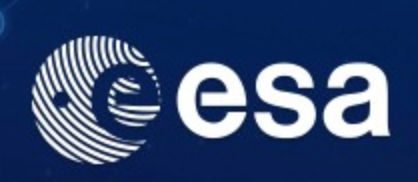Meetings%20and%20Events
 Big Data from Space refers to the massive spatio-temporal Earth and Space observation data collected by a variety of sensors - ranging from ground based to space-borne - and the synergetic use of data coming from other sources and communities. This domain is currently facing sharp development with numerous new initiatives and breakthroughs from intelligent sensors' networks to data science application. These developments are empowering new approaches and applications in various and diverse domains influencing life on earth and societal aspects, from sensing cities, monitoring human settlements and urban areas to climate change and security.
Big Data from Space refers to the massive spatio-temporal Earth and Space observation data collected by a variety of sensors - ranging from ground based to space-borne - and the synergetic use of data coming from other sources and communities. This domain is currently facing sharp development with numerous new initiatives and breakthroughs from intelligent sensors' networks to data science application. These developments are empowering new approaches and applications in various and diverse domains influencing life on earth and societal aspects, from sensing cities, monitoring human settlements and urban areas to climate change and security.
“Cosmology on Safari” will focus on the interplay between cosmological models and data, with emphasis on the challenges that remain in cosmology. Topics covered during the conference will include theoretical perspectives on dark matter, dark energy, gravitational theories and gravitational waves, and the early universe including inflation and primordial physics, as well as observational probes including cosmic microwave background experiments, large-scale structure surveys, 21cm intensity mapping and global measurements, galaxy clusters, gravitational lensing, supernovae, and baryon acoustic oscillations. There will be dedicated sessions devoted to big data.
Detailed information can be found here.
 Data sets in astronomy are becoming extremely large and complex, the research questions that are being asked of these data are also becoming complex and in many cases the richness of the data surpasses the level of sophistication of the theoretical models. Machine learning and AI can thus be used to augment physical models for practical applications (e.g. photometric redshifts) or physical understanding (e.g. galaxy classification, model fitting).
Data sets in astronomy are becoming extremely large and complex, the research questions that are being asked of these data are also becoming complex and in many cases the richness of the data surpasses the level of sophistication of the theoretical models. Machine learning and AI can thus be used to augment physical models for practical applications (e.g. photometric redshifts) or physical understanding (e.g. galaxy classification, model fitting).
Detailed information can be found here.
Large wide-field surveys, carried out with small telescopes and cameras,. have been carried out since more than a century. The information stored in photographic plates became recently accessible by digitization. Since a huge amount of data is piling up in different data bases it is crucial to combine this information and harvest it in an optimum way. This meeting aims to bring together researchers working on the photographic heritage, with those involved in ongoing and future digital surveys. Combing data sets requires in-depth knowledge of calibration. while their study requires the sophisticated tools of astroinformatics (big data, deep learning), which shall be addressed in the conference
Detailed information can be found here
 Earth scientists, applied and computational mathematicians, and statisticians are invited to meet to examine modeling of coupled hazards, to identify the primary challenges in making predictions, and to devise effective strategies to advance methodologies for tackling these complex problems. There will be an examination of the physics of the dominate geophysical process such as mudslides, landslides, avalanches, volcanic mass flow events and airborne ash clouds, and their attendant uncertainties. Researchers will examine and apply new statistical methodologies that show promise for the efficient coupling of hazards.
Earth scientists, applied and computational mathematicians, and statisticians are invited to meet to examine modeling of coupled hazards, to identify the primary challenges in making predictions, and to devise effective strategies to advance methodologies for tackling these complex problems. There will be an examination of the physics of the dominate geophysical process such as mudslides, landslides, avalanches, volcanic mass flow events and airborne ash clouds, and their attendant uncertainties. Researchers will examine and apply new statistical methodologies that show promise for the efficient coupling of hazards.
Detailed information can be found here.
 This series of conferences, Extremely Big Eyes on the Early Universe, will bring together an international group of experts to review the current state of the art in the study of the high redshift universe and discuss how best to use giant telescopes to learn about it. Among others, we aim to address :
This series of conferences, Extremely Big Eyes on the Early Universe, will bring together an international group of experts to review the current state of the art in the study of the high redshift universe and discuss how best to use giant telescopes to learn about it. Among others, we aim to address :
- What are the key synergies between giant telescopes and other facilities? What are the areas and topics where a concerted effort will yield far superior results than the sum of all parts?
- What calculations are required in order to make testable predictions and interpret the results of future astronomical observations?
Detailed information can be found here.
 The aim of this event is to bring together researchers working in numerical analysis, scientific computation and applications. Participants will present and discuss their latest results in this area.
The aim of this event is to bring together researchers working in numerical analysis, scientific computation and applications. Participants will present and discuss their latest results in this area.
Detailed information can be found here.

The science meeting will focus on ongoing research with the SKA pathfinders and precursors, as well as other radio facilities. In particular, it will look at the new science enabled by new technologies (e.g. phase-array feeds) and new techniques (e.g. data science) that have been recently developed and/or are under active development. Additionally, we will examine the new approaches necessitated by the need to handle ever increasing data volume.
More details can be found here

A new astronomy based on gravitational waves was born with the first advanced LIGO and advanced Virgo discoveries Bulk data from past observation runs and data snippets around the discoveries are made publicly available at gw-openscience.org, along with associated software libraries. The workshop will offer participants a hands-on introduction to working with software tools that allow to access and analyze open gravitational-wave data.
Detalied information can be found here

The quest to construct a complete and consistent cosmological model relies on combining data from a number of different sources.Data from the cosmic microwave background, standard candles, sirens, and rulers, the cosmological large-scale structure, and the abundances of chemical elements have all been combined to create the concordance model of cosmology, ΛCDM. As the data expands, there may be correlations between the data sets, and often the strongest constraints and greatest gain in knowledge can come from the correlations inside and between datasets. In the workshop we will discuss the opportunities that current and future data represent, the space of theories that can be tested with such data, as well as the sharing of ideas and techniques.
Detailed information can be found here.

